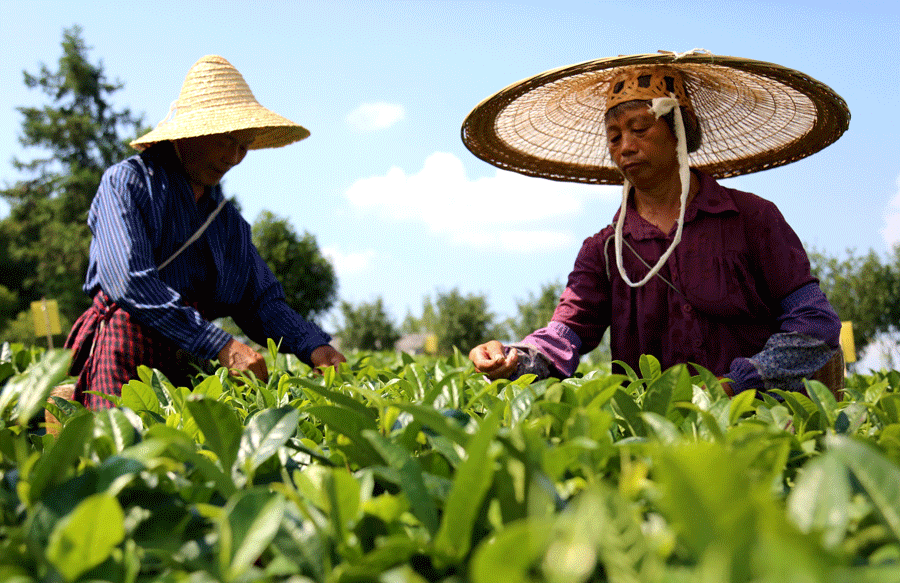Tea cultivation brews rich lives for villagers


Wider benefits
Li Jie, general manager of Sipinjun Tea Co in Hetaoba, has witnessed the rapid growth of the local tea industry, especially in recent years. He cited his company as an example.
Sipinjun was started in 2006 by tea processors in the village who combined the equipment in their family factories to form a cooperative.
"However, they encountered problems finding product distribution channels and establishing a brand. They appreciated my ability in such areas and invited me to become a shareholder and work on those things," said Li, who used to sell cellphones in the county town.
Twelve years later, the company has grown from a village cooperative to an enterprise with an annual turnover of 140 million yuan, and its business is divided equally between tea production and tea tourism.
The company produces more than 20,000 metric tons of tea a year, which is sold in 75 chain stores around the country. Its tourist business targets both groups and self-driving tourists, and offers services ranging from tea-picking activities to lodgings and dining.
Sipinjun employs more than 250 workers at its tea bases, mostly farmers from nearby counties who earn an average of 4,000 yuan a month, an attractive income compared with traditional farming, according to Li.
"Many bring their whole family here. Some of the relatives work at the factory and some at the tea farms, so everybody in the family can earn an income. Working here is much more convenient than working in faraway cities," he said, adding that the workers' children can study at local schools.
According to Chen, the village Party chief, Hetaoba has attracted more than 1,300 outsiders looking for ways to make a living-for example, by renting tea fields from villagers or working for local companies.























